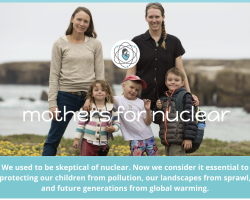Category of Content
Siting Experience Documents Only
Publication Date
Subject Matter
Keywords
Multiphysics Simulation of DPC Criticality Scoping Calculations and Coupling Strategy
Multiphysics Simulation of DPC Criticality Scoping Calculations and Coupling Strategy
Criticality Analysis Process for Direct Disposal of Dual Purpose Canisters
Criticality Analysis Process for Direct Disposal of Dual Purpose Canisters
Dual Purpose Canister Reactivity and Groundwater Absorption Analyses
Dual Purpose Canister Reactivity and Groundwater Absorption Analyses
Review of Criticality Evaluations for Direct Disposal of Submitted to the U.S. Department DPCs and Recommendations
Review of Criticality Evaluations for Direct Disposal of Submitted to the U.S. Department DPCs and Recommendations
CRITICALITY ANALYSIS OF DISPOSAL AND TRANSPORTATION
CRITICALITY ANALYSIS OF DISPOSAL AND TRANSPORTATION
Preliminary Analysis of Postclosure DPC Criticality Consequences
Preliminary Analysis of Postclosure DPC Criticality Consequences
Postclosure Criticality Consequence Analysis - Scoping Phase
Postclosure Criticality Consequence Analysis - Scoping Phase
Workshop to Plan RD Support of Fuel Basket Modification for Direct Disposal of Future DPCs
Workshop to Plan RD Support of Fuel Basket Modification for Direct Disposal of Future DPCs
Summary and Evaluation of NRC RAIs on Applications for Renewal of Licenses for ISFSIs for Dry Cask Storage Systems
Summary and Evaluation of NRC RAIs on Applications for Renewal of Licenses for ISFSIs for Dry Cask Storage Systems
Dual Purpose Canister Reactivity and Groundwater Absorption Analyses
Dual Purpose Canister Reactivity and Groundwater Absorption Analyses
Dual-Purpose Canister Filling Demonstration Project Progress Report
Dual-Purpose Canister Filling Demonstration Project Progress Report
Dual-Purpose Canister Filling Demonstration Project Progress Report
Dual-Purpose Canister Filling Demonstration Project Progress Report
M2SF-19SN010305021- Accelerated Testing of Selected Filler Compositions
M2SF-19SN010305021- Accelerated Testing of Selected Filler Compositions
Criticality Consequence Analysis Roadmap for a Spent Nuclear Fuel Canister in a Repository
Criticality Consequence Analysis Roadmap for a Spent Nuclear Fuel Canister in a Repository
Dual-Purpose Canister Filling Demonstration Project Progress Report
Dual-Purpose Canister Filling Demonstration Project Progress Report
DPC Criticality Simulation Preliminary Phase Fuel Basket Degradation Models
DPC Criticality Simulation Preliminary Phase Fuel Basket Degradation Models
Dual-Purpose Canister Filling Demonstration Project Progress Report
Dual-Purpose Canister Filling Demonstration Project Progress Report
UNF-ST&DARDS Documentation Release 3.0
UNF-ST&DARDS Documentation Release 3.0
Mothers for Nuclear Flyer
Mothers for Nuclear Flyer
Mothers for Nuclear Informational Flyer
Guidance for Creating a Community Benefits Plan for Regional Direct Air Capture Hubs
Guidance for Creating a Community Benefits Plan for Regional Direct Air Capture Hubs
This document is intended to provide supplemental information to assist applicants developing a Community Benefits Plan (CBP) for the Regional Direct Air Capture Hubs. As shown in the graphic to the right, Community Benefits Plans are based on a set of four core interdependent policy priorities: engaging communities and labor; investing in America's workforce; advancing diversity, equity, inclusion, and accessibility; and implementing Justice40.
The Social and Ethical Aspects of Nuclear Waste
The Social and Ethical Aspects of Nuclear Waste
Nuclear waste management seems to exist in a perpetual state of crises. For 50 years the nuclear states of the world have fought, and generally lost, the battle to deal with the nuclear waste problem. Worldwide, there is a growing acknowledgement within industry and government that social and ethical issues are just as important as technical issues when developing safe programs for nuclear waste management. This paper is a review of some of the outstanding social and ethical issues that are influencing discussions on nuclear waste management around the world.
The Morally Desirable Option for Nuclear Power Production
The Morally Desirable Option for Nuclear Power Production
This paper reflects on the various possible nuclear power production methods from an ethical perspective. The production and consumption of nuclear power give rise to the problem of intergenerational justice; in other words, we are depleting a nonrenewable resource in the form of uranium while the radiotoxic waste that is generated carries very long-term potential burdens. I argue that the morally desirable option should therefore be to seek to safeguard the interests of future generations.
Policies for Achieving Energy Justice in Society: Best Practices for Applying Solar Energy Technologies to Low-Income Housing
Policies for Achieving Energy Justice in Society: Best Practices for Applying Solar Energy Technologies to Low-Income Housing
Studies indicate that the energy burden — energy costs as a percentage of annual family income — on low-income families is inordinately high, compared to that of the rest of the population. Rising fuel costs exacerbate this problem. Residential solar energy systems can help address this situation by furnishing a price-stable energy source with the added benefit of reduced greenhouse gas emissions. However, without appropriate incentives, these systems are prohibitively expensive for low-income families.
Reset of America's Nuclear Waste Management Strategy and Policy
Reset of America's Nuclear Waste Management Strategy and Policy
The U.S. nuclear waste management program has labored for decades at a cost of billions of dollars each year, and yet there is still no active disposal program either for spent nuclear fuel from commercial reactors or for the high-level radioactive legacy waste and spent nuclear fuel from defense programs.

